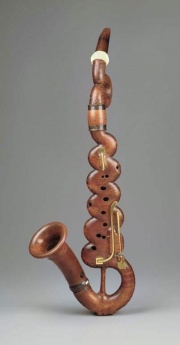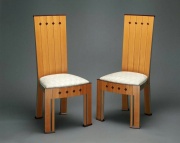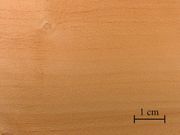Pear
Description
A common, deciduous tree, Pyrus communis, cultivated in temperate climates for its fruit. Pear trees are native to Europe and parts of southeast Asia. Pearwood has a fine uniform texture with an irregular silvery grain. The light reddish brown wood is not resistant to outdoor weathering. Pearwood has been used for small carvings, drawing instruments, veneer and inlays. Like other fruit trees from the rose family, pear trees exudes a water soluble Gum from damaged locations on its truck and branches.
Synonyms and Related Terms
Pyrus communis; fruitwood; pearwood; poirier (Fr.); Birnbaum (Deut.); pero (It.); pereira (Port.); peral (Esp.)
Physical and Chemical Properties
- Density = 38-45 ppcf
Resources and Citations
- Schoch, W., Heller, I., Schweingruber, F.H., Kienast, F., 2004:Wood anatomy of central European Species: Pomaceous Fruit:Pear-Tree, Pirus communis L.
- Ralph Mayer, A Dictionary of Art Terms and Techniques, Harper and Row Publishers, New York, 1969 (also 1945 printing)
- Hermann Kuhn, Conservation and Restoration of Works of Art and Antiquities, Butterworths, London, 1986
- F. H. Titmuss, Commercial Timbers of the World, The Technical Press Ltd., London, 1965 Comment: 45 ppcf
- Dictionary of Building Preservation, Ward Bucher, ed., John Wiley & Sons, Inc., New York City, 1996
- CRC Handbook of Chemistry and Physics, Robert Weast (ed.), CRC Press, Boca Raton, Florida, v. 61, 1980 Comment: density=38-45 ppcf (0.61-0.73 g/cm3)


